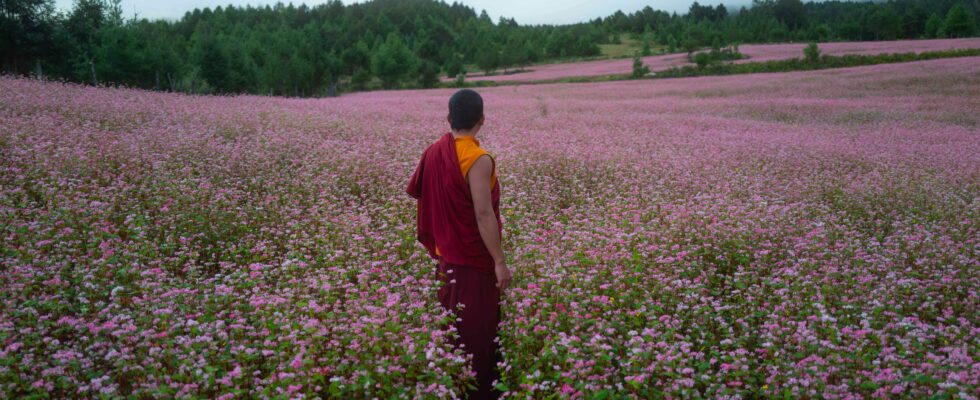The advantage for me with modern Bhutanese cinema is that by having seen absolutely all the Bhutanese films released in France over the past fifteen years, I can claim without boasting too much to have become one of the world’s greatest specialists in Bhutanese cinema which, over the last fifteen years, has produced no less than two feature films. I praised the first here, The School at the End of the Worlddirected in 2019 by Pawo Choyning Dorji, which tells the story of a young rebellious schoolteacher who dreams of becoming a singer in Australia, but whose administration sends him to teach in the most remote village in the Himalayan heights of the kingdom.
Because Bhutan is a kingdom, a little larger than Switzerland, where fewer than 800,000 inhabitants live, subjects of King Jigme Khesar Wangchuck, whose father, who ceded his throne to him in 2006, is known internationally. international for having invented the concept of Gross National Happiness, the GNH, supposed to make fun of the GDP, an economic indicator incapable of doing justice to the particular atmosphere which reigns in the kingdom where, he had argued, we live much happier than in many other countries with insolent gross domestic products and large consumers of antidepressants.
The school where the singing teacher failed was just a dusty hut, without benches or chairs, without chalk or blackboards, but with wonderful children who only wanted to learn. Selected over no other Bhutanese film to represent the Kingdom of Bhutan at the Oscars, it is nominated for Best Foreign Film. If it inevitably misses out on global recognition, it nonetheless remains a social tale of overwhelming clarity.
What is democracy ?
Five years later, here is Pawo Choyning Dorji’s second film, The Monk and the Gun, a modern tale, again, shot in a setting barely less remote than the first. The same children eager to learn, but parents who find themselves confronted with an unprecedented political situation which will remind you of something, if you follow me carefully. The king of Bhutan, I remind you that this is a story, abdicates in favor of democracy. An enlightened monarch, he was told that a modern country could not remain a monarchy, even if it were as tiny and backward as Bhutan. The problem is that the word “democracy” doesn’t really resonate with the villagers. The notions of representation, elections, votes, program, that goes beyond them. Don’t understand. So we have to educate them. The king of Bhutan is not the first and will not be the last to call his subjects imbeciles, if you know who I am thinking of.
What is democracy? The educators in charge of evangelizing this people with the highest GNH in the world organize a first blank election in each village. There are three parties in the running, the ecology party, the economy party, the progress party, if I remember correctly, but that hardly matters. What is needed is for the villagers to divide into three roughly equal groups to defend their color. Listen to the speeches of the representatives, applaud them, louder than that, even louder, and shout with more conviction, energy, rage, because the future of the country is at stake; come on, start again: shout! No, louder, the educator demands again, be mean, insult each other, this is modern Bhutan that we are building, so let’s start again and this time you jostle each other. But yes, that’s how it is, even louder. Yes, with your fists.
The poor villagers are stunned by their own rage to conquer democratic power, and at this moment in the film, we say that Pawo Choyning Dorji had foreseen the dissolution, he had imagined Macron as king of Bhutan. Fortunately, there are many other sensational things in his film that make him a great filmmaker.
.
